News + Media
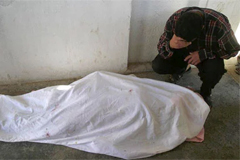 |
Analysis + OpinionDecember 31, 2006In Iraq, the losses Americans don't seeJohn TirmanNewsdayWe focus so much on the deaths of our troops that we don't understand the suffering of Iraqis. |
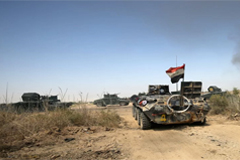 |
AuditDecember 1, 2006Regionalizing the Iraq conflict?John Tirman, MITIn one way or another, we are headed for a new engagement with the regional players to in an effort end the Iraq war. The idea of bringing in the neighbors to help stabilize and reduce the violence in Iraq is very attractive, and could contribute to a plausible exit strategy for the United States. |
 |
News ReleaseNovember 14, 2006Iraqi journalist joins CIS as a Neuffer FellowCIS announced today that Huda Ahmed, an Iraqi journalist who has been covering the war in Iraq for Knight Ridder, has joined the Center as its 2006-2007 Elizabeth Neuffer Fellow. The Elizabeth Neuffer Fellowship offers a female journalist the opportunity to focus exclusively on human rights journalism and social justice issues. |
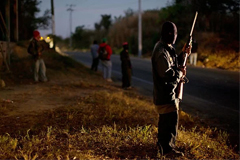 |
AuditNovember 1, 2006Violence and insecurity: the challenge in the global southDiane Davis, MITIt does not seem that long ago that optimism flowered about prospects for democracy and sustained economic development on a worldwide scale. But hopes for the future have dimmed over the last several years, as problems of violence, crime, and insecurity have emerged with a vengeance in many parts of the global south. |
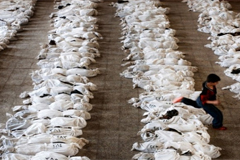 |
Analysis + OpinionOctober 15, 2006Generations have been decimated; who will be left to rebuild the nation?Barbara BodinePittsburgh Post-GazetteWe will never know the full civilian toll of the Iraq War. Two years ago a Johns Hopkins University public health study concluded that something like 100,000 civilians had been killed in the first 18 months of the Iraq War, more than half of them women and children and most as a result of coalition action. |
 |
AuditOctober 1, 2006The war on terror: forgotten lessons from World War IIStephen Van Evera, MITPresident Bush recently likened the war on terror to the struggles Americans faced in World War II, explaining that our enemies are “successors to Fascists, to Nazis ... and other totalitarians of the 20th century.” The analogy to World War II is useful and illuminating. Important lessons from World War II apply to the war on terror. |
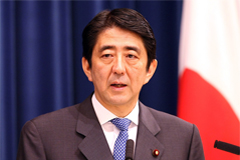 |
AuditOctober 1, 2006Waiting for Goldilocks: getting Japan’s foreign policy just rightRichard J Samuels, MITThis metaphor captures the challenges awaiting Abe Shinzo, Japan’s new prime minister very nicely—particularly in the areas of foreign and security policy. His predecessor, Koizumi Junichiro, had already been like Goldilocks in his extended effort to find just the right policy toward North Korea. |
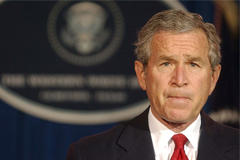 |
AuditOctober 1, 2006The Bush Administration is Weak on TerrorStephen Van Evera, MITThe U.S. public widely credits President Bush with toughness on terror. An August 2006 poll found 55 percent of Americans approving his handling of the campaign on terror and only 38 percent disapproving. Republican candidates are running successfully on the terror issue in this fall’s election campaign. In fact, the Bush administration is weak on terror. |
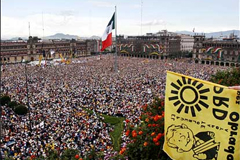 |
Analysis + OpinionSeptember 17, 2006Mexico's dangerous political chasmChappell LawsonBoston GlobeThis month, Mexico's Federal Electoral Tribunal formally certified Felipe Calderon's victory in the July 2 presidential election. Although this decision is the legal end of the electoral process, it will not resolve the post-electoral conflict. |
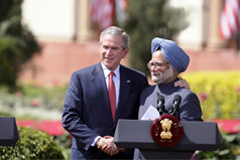 |
AuditSeptember 1, 2006The US-India Nuclear Deal: Triumph of the Business LobbySubrata Ghoshroy, MITMuch has been written and spoken about the US-India nuclear agreement since Prime Minster Manmohan Singh and President George W. Bush unveiled it on July 18, 2005, in Washington, DC. Since then, the U.S. Congress has virtually set aside its much touted concerns about proliferation of nuclear weapons and is nearly ready to approve the amendments to the 1954 Atomic Energy Act that will be necessary for the deal to be consummated. |

